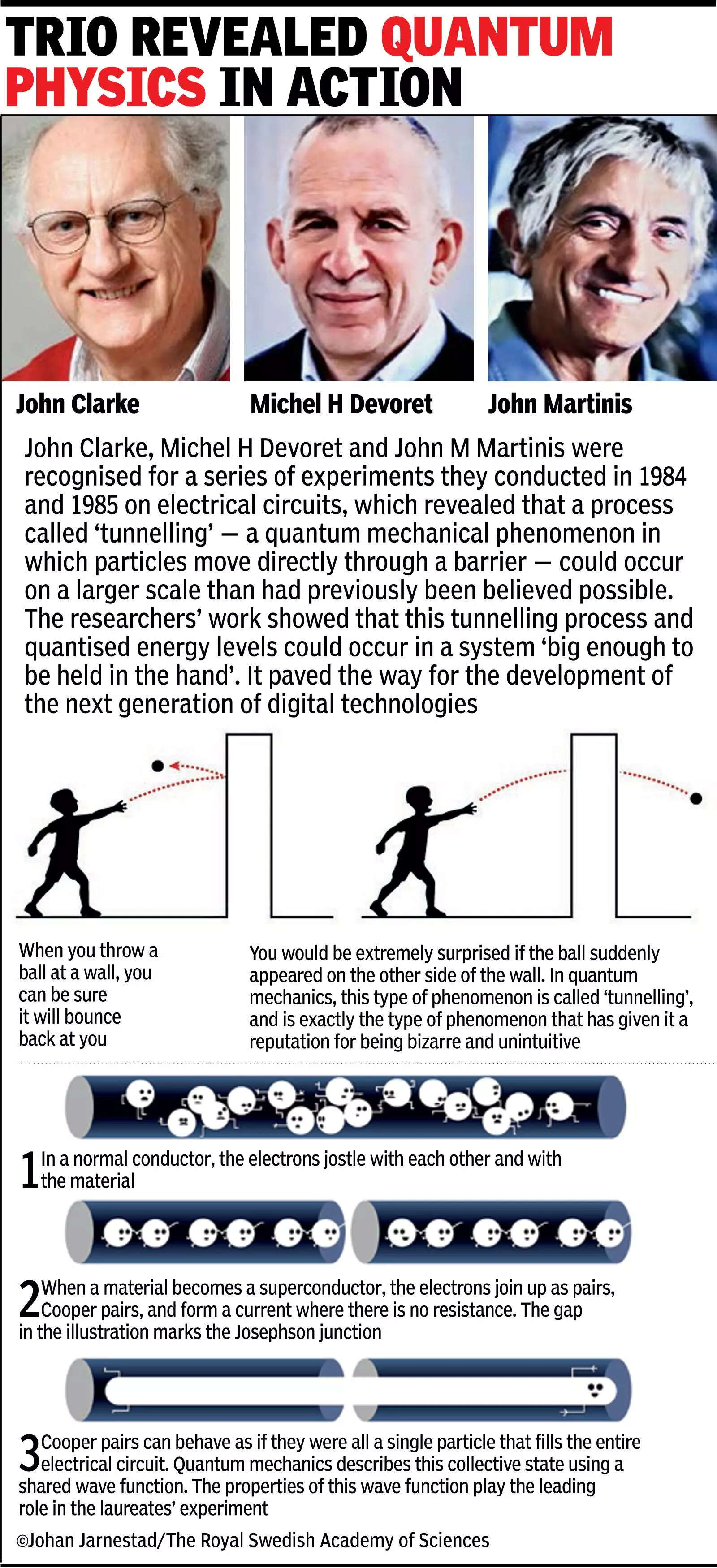STOCKHOLM: US-based scientists John Clarke, Michel Devoret and John Martinis won the 2025 Nobel Prize in Physics for “experiments that revealed quantum physics in action”, paving the way for the development of the next generation of digital technologies. “There is no advanced technology today that does not rely on quantum mechanics,” Olle Eriksson, chair of the Nobel Committee for Physics, said during the announcement of the award. The laureates’ discoveries, he added, paved the way for technologies such as the cellphone, cameras and fiber optic cables.It also helped lay the groundwork for current attempts to build a quantum computer, a device that could compute and process information at speeds that would not be possible with classical computers. The three scientists were recognised for a series of experiments conducted in 1984 and 1985. They proved the existence of two quantum phenomena on a system visible to the human eye.The principles of quantum mechanics describe the strange properties and behaviours of single or small collections of elementary particles. In one such behaviour, called quantum tunnelling, a particle can move through a barrier even if it does not have enough energy to do so. Another property of subatomic particles is that they can emit and absorb energy only in fixed, discrete amounts. This is known as the quantization of energy. With a large number of particles, however, these tiny quantum effects generally become insignificant.

The laureates of this year’s physics prize showed, for the first time, that quantum tunneling is observable in a system they called macroscopic because it was “big enough to get one’s grubby fingers on,” according to their paper describing the discovery. They also showed that the energy of this system was quantised, or existed at fixed levels.They made these discoveries by studying a chip with a circuit that was superconducting, meaning it was capable of conducting current with no electrical resistance. As a result, the current was “trapped” in a state of flow without any voltage, because it did not have enough energy to escape, according to a summary posted by the Nobel committee, as if behind a barrier that it is unable to cross. The researchers observed the current go from a state of zero voltage to one of non-zero voltage, an observation of quantum tunneling. They also observed that the system only absorbed light of certain frequencies, suggesting that its energy was ‘quantised’. The three laureates will share a prize of 11 million Swedish kroner (Rs 10.4 crore).British-born Clarke is a professor at the University of California, Berkeley. Devoret, who was born in France, is a professor at Yale University and the University of California, Santa Barbara, also in the US, where Martinis is also a professor.Two of the three have links with Google. Martinis headed Google’s Quantum Artificial Intelligence Lab until 2020. Devoret, besides his professorship, is also the chief scientist of Google Quantum AI. It is the second straight year that a Nobel has been won by scientists with Google ties. The 2024 chemistry prize was awarded to Demis Hassabis and John Jumper at Google DeepMind while Geoffrey Hinton, who worked for Google for over a decade, won for physics the same year.



